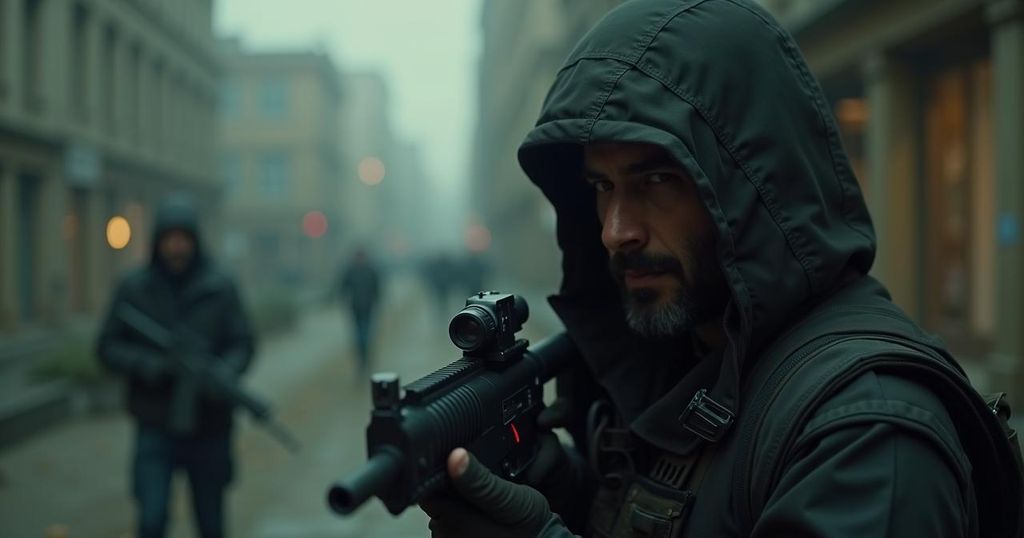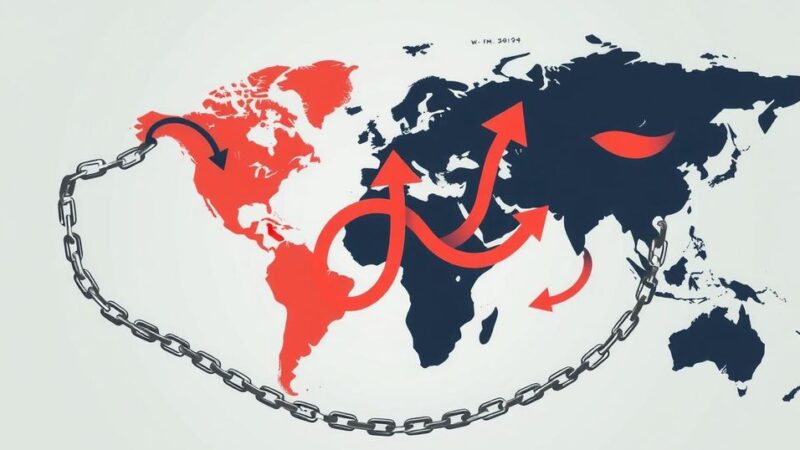Recent Israeli airstrikes in Beirut killed 22 and injured 117, targeting Hezbollah’s Wafiq Safa. UN peacekeepers were also struck, leading to global condemnation and calls for a ceasefire, including support from the U.S. and France for strengthening Lebanon’s military. Vice President Harris advocated for de-escalation, while reports of espionage within Iran’s military raise further tensions.
In recent developments in the escalating Iran-Israel conflict, a series of airstrikes by the Israeli military on Thursday resulted in the deaths of 22 individuals in Beirut, alongside injuring 117 others. The strikes were reportedly aimed at targeting Wafiq Safa, a leader within Hezbollah; however, he was not present at the targeted locations, leading to the complete destruction of buildings. Concurrently, Israeli forces engaged the United Nations Interim Force in Lebanon (UNIFIL) by striking their headquarters in Naqoura, resulting in the wounding of two peacekeepers, requiring hospitalization. The international community has condemned these actions, with the United States advocating for an immediate ceasefire to avert a broader conflict between Iran, Lebanon, and Israel. Lebanon’s ambassador to the UN echoed this call, while Israel’s representative affirmed their commitment to continue military operations until all Hezbollah-affiliated threats were neutralized. Since the commencement of strikes on October 7, over 2,000 individuals in Lebanon have reportedly lost their lives, exacerbating an ongoing humanitarian crisis, with the Lebanese Health Ministry indicating that over 10,000 have been injured in the conflict. In addition to the bombardment in Lebanon, Israeli airstrikes in Gaza have targeted militant groups, leading to civilian casualties, including the deaths of 27 individuals sheltering in a school. The United States, along with France, has supported an initiative to reinforce the Lebanese Armed Forces as a means to stabilize the region. Deputy U.S. Ambassador Robert Wood emphasized the importance of establishing a truly sovereign Lebanon equipped with a legitimate security force. U.S. Vice President Kamala Harris also called for de-escalation in the conflict, advocating for a ceasefire during remarks made to the press. Meanwhile, amidst the tumult, there are reports that Iranian military chief Brigadier Esmail Qaani is under investigation for potential collusion with Israeli forces following the deaths of prominent Hezbollah figures, raising further concerns regarding internal security within Iranian ranks. These incidents illustrate the complexity of the situation, with rising tensions between state actors and their repercussions on regional stability and humanitarian conditions.
The Iran-Israel conflict remains a significant geopolitical issue, punctuated by military engagements, particularly between Israel and militant groups like Hezbollah in Lebanon. The recent escalation of violence follows a troubling trend of airstrikes, counterstrikes, and targeting of both military leaders and civilian infrastructures. The involvement of international bodies such as the United Nations signifies the global implications of this conflict, as efforts are made to mediate and call for ceasefires against a backdrop of ongoing military operations and humanitarian crises in both Lebanon and Gaza. The potential espionage activities within Iranian leadership also highlight the internal tensions that may influence the broader conflict dynamics.
The recent airstrikes conducted by Israel in Lebanon and Gaza have precipitated a significant humanitarian crisis, eliciting international outcry and calls for a ceasefire. The targeted killing attempts against Hezbollah leaders have led to civilian casualties, further destabilizing the region. As calls for strengthening Lebanese security forces emerge, concerns regarding Iranian military leadership’s trustworthiness surface, suggesting internal strife amidst an already volatile situation.
Original Source: www.hindustantimes.com







